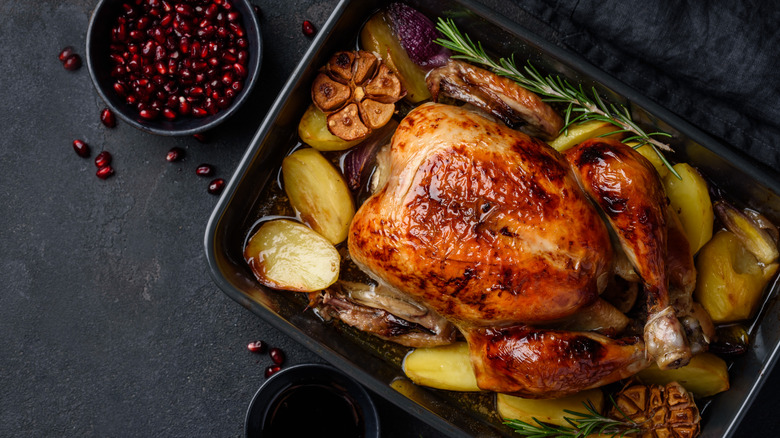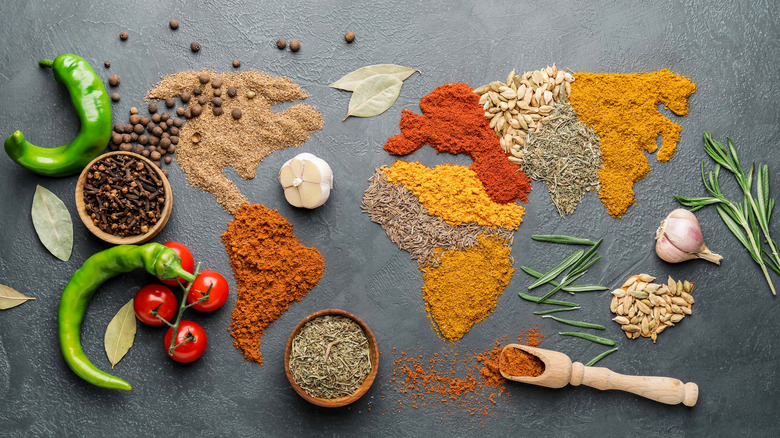The Reason Aromatics Are So Important When Cooking Chicken
Any fan of Julia Child has to have seen the remix PBS Voices created almost 10 years ago. It's a somewhat musical compilation of her greatest moments and sayings. In the video, Child attests that "the real test of a good chef is a perfectly roasted chicken." Unfortunately, home cooks make many mistakes when cooking chicken, as Eat This, Not That reveals. They range from errors as seemingly innocuous as forgetting to use a meat thermometer to more serious food safety concerns. So please don't thaw your raw poultry on the countertop.
One mistake, in particular, is forgetting to use aromatics when cooking chicken. It is simple to add, as Child put it, the classic trio of lemons, garlic, and rosemary to the cavity of your bird. But, regardless of what you decide to use, neglecting to add aromatics to your chicken could spell the difference between juicy and flavorful or rubbery and dry.
Aromatics 101
So, what are aromatics, and which ones should you use in your chicken? MasterClass tells us that "aromatics refer to the vegetables, herbs, and spices [that] cooks use as the foundation of flavor for dishes." Think the classic onions, carrots, and celery of a French MirePoix or India's cumin, cardamom, and turmeric.
Aromatics release moisture and flavor into the meat as the chicken roasts (per Eat This, Not That). The best way to ensure that your roast is packed with flavor is to add aromatics to the cavity. The release of moisture is a virtual failsafe against a dry finished product. How you choose to flavor your chicken is entirely up to you. You could roast chicken with chickpeas, smoked paprika, and kale. You could even use Child's Roast Chicken recipe, which includes adding shallots and onions to the pan.
Roasting a chicken to perfection may seem daunting, but it takes time to learn what flavors are right for you. So experiment, have fun, and listen to Julia.

